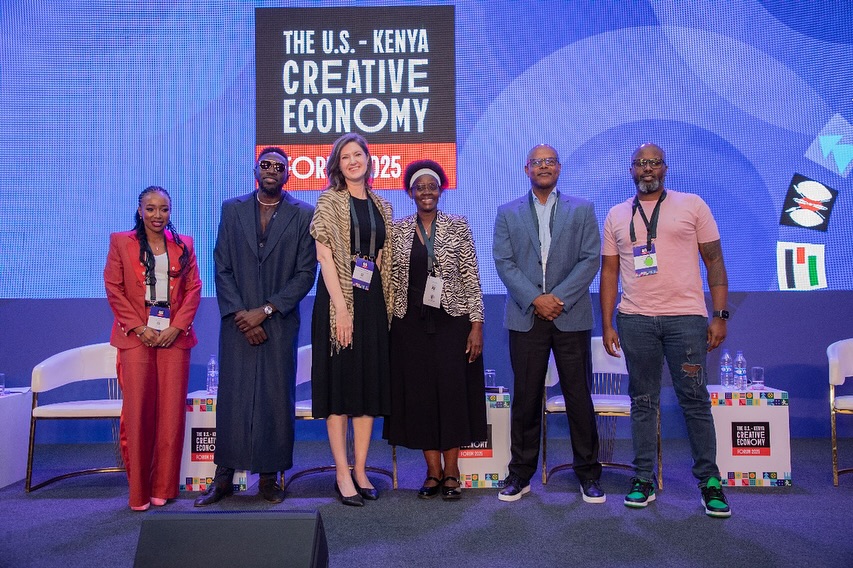In the music business, knowing your rights is just as important as creating great songs. One of the most overlooked but critical aspects of protecting and monetising your work is understanding the unique identification numbers that track ownership and usage of your music worldwide.
If you’re a Kenyan music creator—whether you’re a songwriter, composer, performer, or producer—three key codes can make the difference between earning royalties and leaving money on the table: IPI, ISWC, and ISRC.
1. What is an IPI Number?
IPI stands for Interested Party Information number.
It’s a unique international identification code assigned to songwriters, composers, and music publishers when they register with a Performing Rights Organisation (PRO) or Collective Management Organisation (CMO).
- Purpose: It identifies you as the rights holder for your musical works in royalty collection systems worldwide.
- Example: If a radio station in Germany plays your song, the local PRO/CMO there can use your IPI number to track and route royalties to you via your home PRO/CMO.
Why it’s important: Without an IPI number, your royalties may get lost or remain unclaimed, because the system wouldn’t know who to pay.
How to get it in Kenya:
- Join a PRO/CMO.
- Once your membership is approved, you’ll be issued an IPI number.
I know there has been enough drama when it comes to CMOs in Kenya. To keep this article neutral, I have opted not to mention any specific CMO.
2. What is an ISWC?
ISWC stands for International Standard Musical Work Code.
It’s a unique code assigned to each musical composition (song) itself—not the recording.
- Purpose: It identifies the underlying song (lyrics and melody) regardless of who records it or how many versions exist.
- Example: If three different artists release their own recordings of “Malaika,” they may each have their own ISRCs for the recordings, but they will all share the same ISWC for the song.
Why it’s important: This code ensures your composition is correctly tracked worldwide so you can collect performance royalties whenever it is played, covered, or used commercially.
How to get it in Kenya:
- When you register a song with a CMO (or your publisher does it for you), they will request an ISWC on your behalf from the global ISWC system.
- You can also get it via international PROs if you’re registered there.
3. What is an ISRC Number?
ISRC stands for International Standard Recording Code.
It’s a unique code assigned to a specific sound recording or music video.
- Purpose: It identifies each recording version of a song, helping track sales, streams, and broadcasts.
- Example: If you record an acoustic version and a studio version of the same song, each will have its own ISRC.
Why it’s important: Digital platforms like Spotify, YouTube, and Apple Music use ISRCs to log plays and report them to collection agencies and labels for royalty payouts.
How to get it in Kenya:
- Through IFPI Kenya (International Federation of the Phonographic Industry – Kenya office).
- Some music aggregators and distributors (e.g., TuneCore, CD Baby, DistroKid) can generate ISRCs for you automatically when you release music.
Why These Numbers Matter for Royalties
Every time your music is streamed, downloaded, played on radio/TV, or performed live, royalty collection systems need a precise way to know who owns the work and which version was used.
If your IPI, ISWC, or ISRC is missing or incorrect:
- Royalties might be paid to someone else.
- Payments could be delayed or lost.
- You may never know how often your work is actually used.
By having these codes:
- IPI ensures you are identified as the owner.
- ISWC ensures your song is identified in global databases.
- ISRC ensures your recording is tracked for sales and streams.
Step-by-Step for Kenyan Creators
- Join PRO/CMO to get your IPI number.
- Register each composition with the CMO to get its ISWC.
- Assign ISRCs to your recordings via IFPI Kenya or through your distributor.
- Keep a record of all your codes—they’re your music’s digital fingerprint.
Final Tip
Think of IPI, ISWC, and ISRC as your music’s ID card, passport, and serial number. Without them, your music can get lost in the system, and your royalties with it. As a creator in Kenya, taking the time to register and secure these numbers is one of the smartest business moves you can make. If you need assistance you can reach out to me bkaymaweu at gmail.com





Thanks for these very important insights. I am a music and film producer/Artist and I have been living in great fear of working so hard and never making anything out of my sweat. Lastly, in Kenya we have a lot of issues with PRO/CMO a lot of corruption. Royalties being collected in millions but artists earning almost NOTHING. Makes me sad that all these still has to go back to the useless and very corrupt CMOs that we’ve 😭😭💔💔💔💔 can’t be another options ????